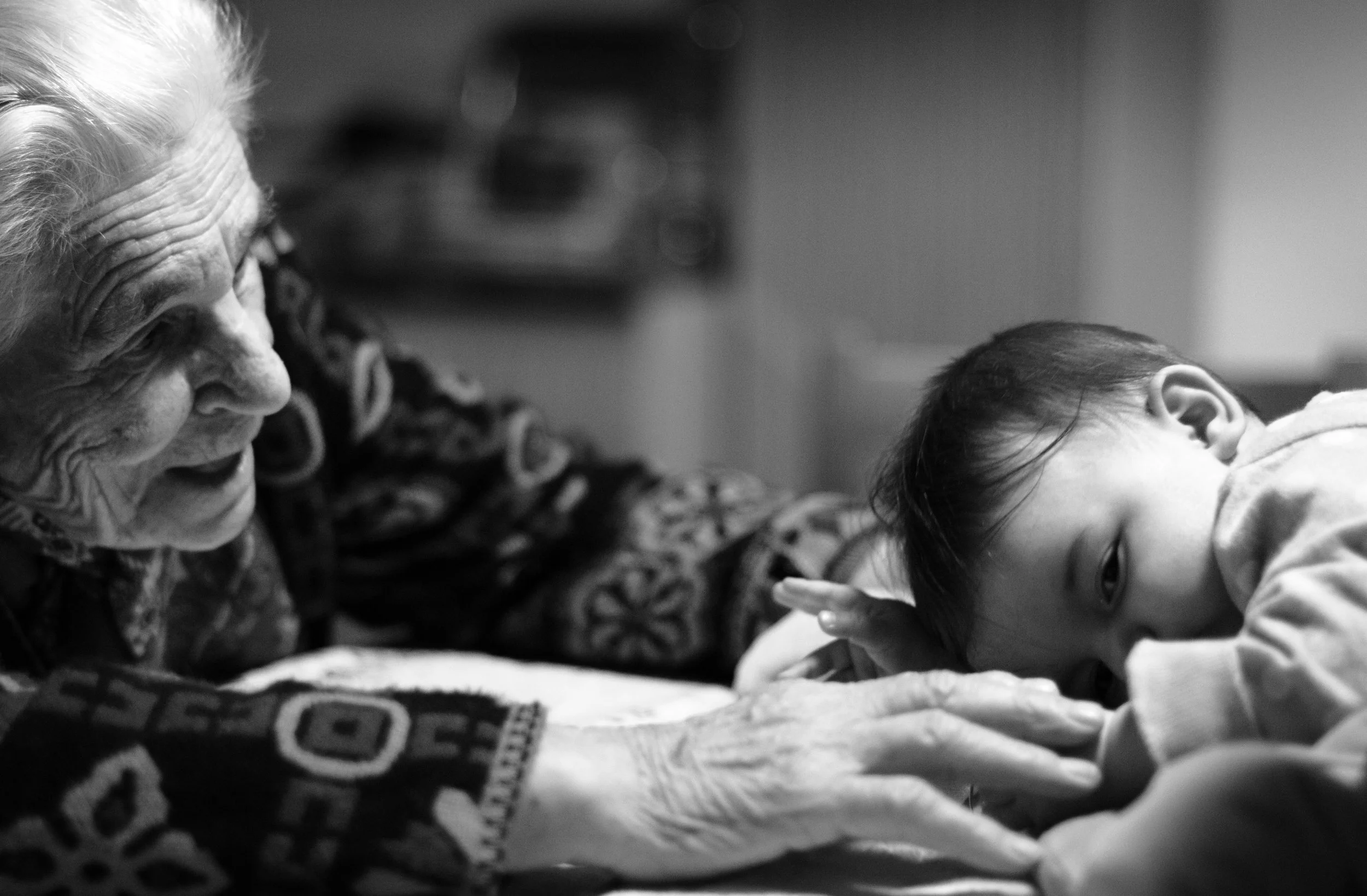Don't Squander Your Intergenerational Inheritance
’Tis the season when we tend to spend an increasing amount of time with our immediate and extended family members. Some people relish the opportunity, while others hold their breath until it’s over.
We may fall into the camp of those who are counting down the days, hardly able to contain our excitement for the family banter and home cooked meals that await us. Or we might be among those who rely heavily on spiked eggnog or seasonal Xanax to survive the obligatory holiday trip and dreaded family dynamics. Perhaps, we have already established boundaries among the dysfunctional relationships in our lives, and will be participating in festivities with our friends or “chosen family.”
Regardless of your unique situation, this is a season in which we are saturated with images of happy, idealized families playing in the snow, hanging by the fire, singing by the tree. Holiday movies running on replay loops, social media feeds, and commercials selling seasonal joy all seem focused on family time together.
Whether you choose to be with your family, or prefer to create your own traditions and seasonal rituals independently, it’s difficult to avoid the inescapable reminders about family associated with this time of year.
Pop psychology has ushered in a heightened awareness of the role family plays in our own personal development and emotional wellbeing.
The field of attachment research (which dates back over fifty years) has gained recent momentum, as has the more contemporary field of epigenetics. Both emphasize the connection between our relationships with our parents and how we relate to ourselves and others throughout our lifespan.
Not only are we impacted by our experiences with our parents, but studies in intergenerational trauma indicate we are also significantly influenced by our parents’ experiences and our grandparents’ experiences and so on.
Essentially, we absorb, adapt, adjust, and accommodate to life based on what was modeled for us and how generations before us responded to their own respective life challenges.
One of the most noteworthy studies in this area was conducted with lab mice in 2013. Male mice were conditioned to elicit fear in response to the scent of fruit blossoms, by accompanying the scent with a mild electric shock. Those same mice later demonstrated fear (increased stress, startle response, etc.) even without the electric shock.
The more interesting results from this study revealed that at least two generations of offspring from the original group of mice also demonstrated fear and aversion to the same fragrance despite having never been exposed to shock and never having even met their parents or grandparents (the original study subjects).
The adverse response to an otherwise harmless stimulus (scent) seems to have been passed down through DNA, indicating we can inherit emotional experiences like fear.
This research contributes to what we know about intergenerational trauma, and illustrates how the experiences and responses of our parents directly impact how we experience the world.
Challenges of immigration, famine, poverty, physical or sexual abuse, genocide, racism, parental separation, emotional neglect, and other traumas can all be evidenced behaviorally, anatomically (neurological changes), and psychologically by subsequent generations.
Understanding who our parents are and where they come from can offer us tremendous insights into how and who we are.
By exploring the depths of our origin story, we can improve awareness of our subconscious tendencies and create meaning of how we operate in the world.
Do you find yourself drawn to the same kind of emotionally unavailable partner?
Do you notice yourself pulling away in relationships when you begin to feel like someone is getting too close or expecting too much from you?
Do you seek out novelty or prefer the familiarity of what you know?
Do you scrimp and save for your future or in case of an emergency, or do you splurge on expensive gifts or spend money as soon as you get it?
Do you prefer the stability of a corporate nine-to-five, or are you more of a free-spirited entrepreneur?
Of course, the answers to these questions don’t necessarily imply that you have inherited all your proclivities from Great-grandpa Frank or Grandma Marge, but the process of asking the questions might shine some perspective on something you’ve overlooked.
When we understand the relevance of intergenerational trauma and the adversity and hardships our ancestors faced, we gain deeper awareness and appreciation for what influences our behavior, our sense of safety, and our relationships.
The more we are willing to explore, the more we are able to recognize patterns. This helps us to make well-informed decisions and respond to ourselves with patience and compassion.
Our intergenerational psychological inheritance is not limited to negative life experiences and protective responses. What if we gave more attention to the positive and growth oriented qualities we’ve acquired?
If we can inherit fear, insecurity, and trauma from our ancestors, we can also be directly impacted by their courage, fortitude, creativity, and endurance.
We don’t hear as much about intergenerational resilience, but we are here in this moment in time because our ancestors persevered and survived. Whether we know the details of our genetic history or not, we are the products of evolutionary resilience.
We are nearing the end of another year, a time when many people reassess, take inventory, let go of what feels outdated or outgrown, and set new intentions.
What better time than now, when we might also be surrounded by family (or associations with family), to reflect on what we may have inherited through them?
For those who don’t have a relationship with their biological family, we can still reflect on what we know of our ethnic or cultural background and/or focus more on qualities we’ve inherited through environmental, social, or relational experiences.
We can include the history of hardships or difficulty, but we don’t need to dwell solely in that perspective. Of course, it can be helpful to recognize that we come from a long line of paternal abandonment or financial insecurity or clinical depression. However, even if we come from the most dysfunctional family on the planet, we do ourselves a disservice if we neglect to explore our history of resilience and triumph.
Consider all aspects as significant pieces of the puzzle. We may have acquired a legacy of a strong work ethic, a fierce loyalty, a relentless pursuit of a good time, a killer sense of humor, or a blind and generous heart.
Resilience, like its cousin, trauma, can be compounded and sustained (or transformed) across time. Every element of intergenerational influence provides valuable insight into the operating system of who we are. It’s our responsibility to learn and understand how it works.
Take time to recognize the positive traits you’ve inherited. Celebrate the victory of overcoming challenge or the sweet revenge of success in spite of oppression or opposition.
Honor the ways you have curated and tailored whatever you’ve inherited.
Appreciate how you have integrated your history into your present life experience and unique personal values.
Don’t squander what’s been passed down to you— take ownership of it, reshape it, mold it, improve upon it, and make it your own.





